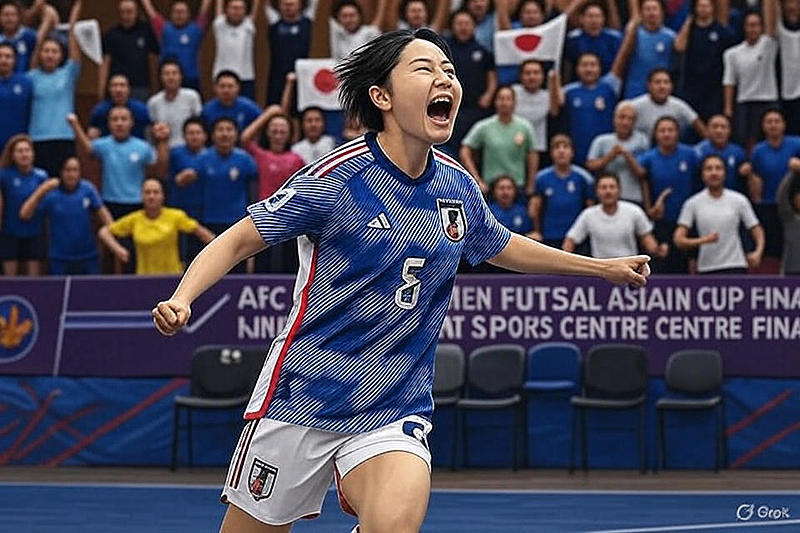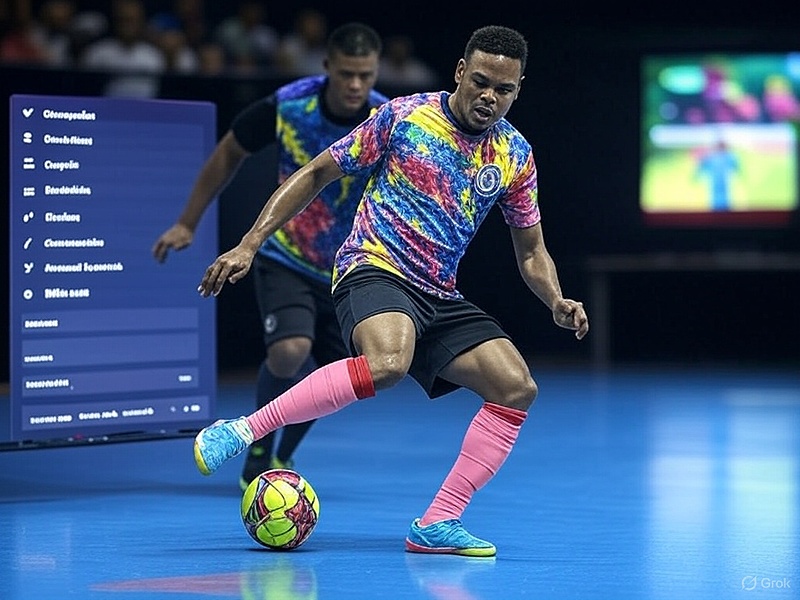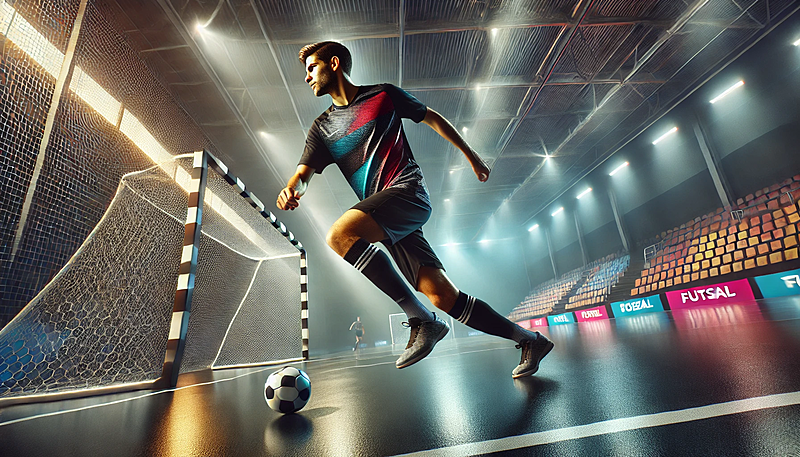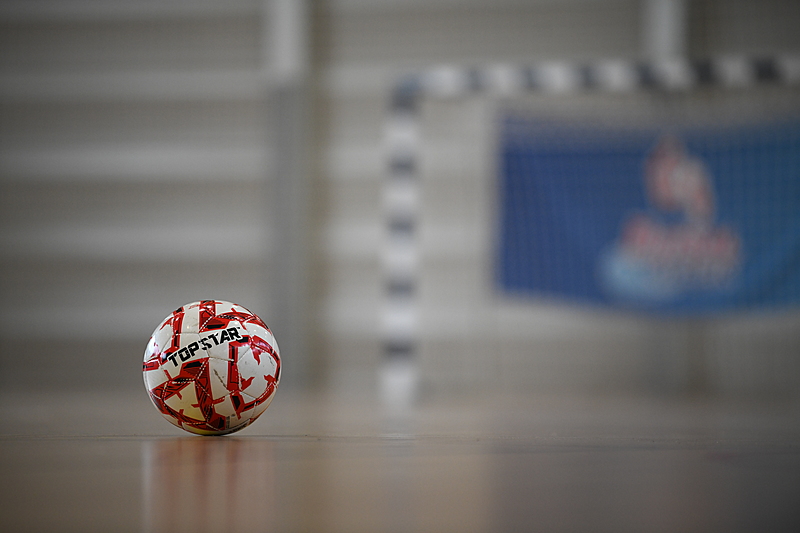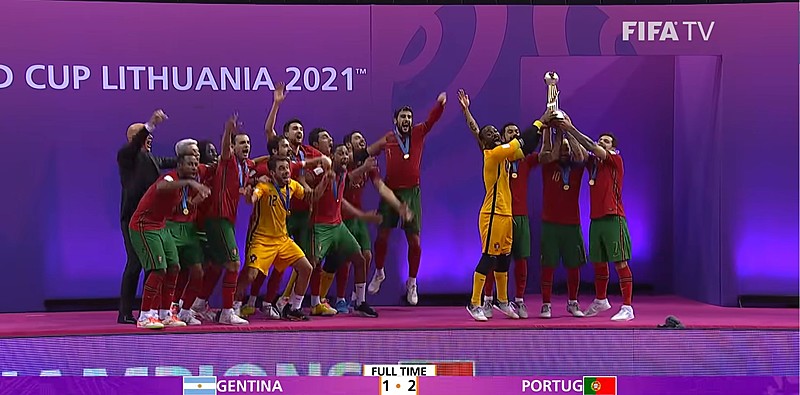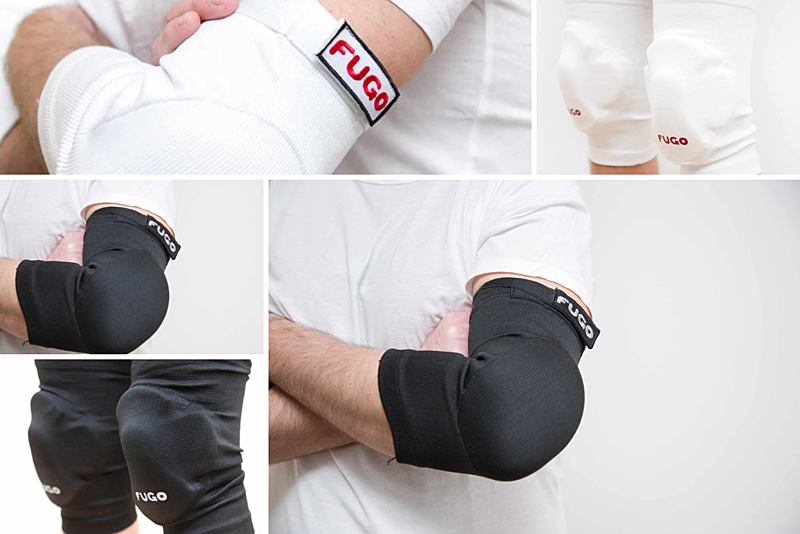Since its introduction in football a few years ago, Video Assistant Referee, or simply VAR, has been at the center of the heated discussions of sports fans across the globe. Well, football fans at least.
Many are satisfied with this reform of the game because they believe it already reduced the number of mistakes officiated by the referee, while many are upset because they believe it transforms the traditional game arguing that it extends the duration of the match, as well as the process itself not being transparent enough.
Both sides agree, though, that this is not the final form of VAR.
VAR in Futsal is Gaining Momentum
We are not that much interested in how VAR affects the football world. However, we are more interested in the discussion - Should VAR be implemented in the beautiful game of futsal?
The discussion about VAR in futsal started quite shy, with a sporadic Tweet or a news bulletin here and there and it was mainly connected to the top and elite futsal levels and countries. However, the topic of implementation of VAR in futsal has been gaining momentum, especially after FIFA decided to introduce VAR to the Futsal World Cup for the first time on such a scale and on a high-level event.
Obviously, VAR is still a new technology and we have not seen its final shape or form. Despite its usage becoming more and more present, VAR still needs to make its solid roots in football before being able to “transfer” to another sport such as futsal, on such a scale.
So, to facilitate a discussion about introducing VAR in futsal, let us look at the pros and cons of such a scenario. Every change is hard in its beginning, especially for the more traditional fans of the sport.
But many will argue how we should use the advancement in technology to reform our sports in the same way how technology changed our daily lives and to keep our favorite sport from losing popularity to new, emerging sports and audiences.
In fact, can we state for a fact that founders of football or futsal would be against this kind of technology in the game if they had it back in the day?
Pros and Cons for VAR in Futsal
Pros:
- In comparison to football, futsal already has a much better base for the implementation of VAR. The sport is already familiar with the mechanic of stopping the clock every time the ball goes out of play or when there is some kind of interruption. This is the opposite of the non-stopping clock in a football match where VAR pauses can arguably cause unusually long delays and disrupt one or both teams' match rhythm. Although long delays could potentially have the same disrupting factor in futsal, players are already accustomed to time-outs that don’t exist in football and the premise is that this wouldn’t be as disruptive as in football. As for the clock management – consequences would be minimal to non-existent.
- Now the obvious part. VAR could eliminate a lot of crucial mistakes done by the referee – be it the goals, or the fouls, or the two-minute suspensions. It is not my intent to bad-mouth the referees in our sport, but futsal is a very dynamic and attractive sport that is extremely fast-moving and the referee has to be fully concentrated for the duration of the game because the match could potentially be turned upside down in a matter of seconds. VAR could greatly assist in eliminating those crucial mistakes that can change the momentum in the match. This would also bring down the number of controversies after the match so fans and players alike can concentrate on the match itself instead of blaming it all on the referees.
- VAR could also help in a way that it could facilitate the professional development of referees in our sport. The rise in overall player quality around the world should be followed by equally good referees for the sport to be recognized by the fans everywhere. Professional education for referees that could follow VAR implementation is potentially very beneficial for futsal as a sport.
After listing several pros for VAR introduction, let’s take a look at the negative side. What could be the negative implications of VAR in futsal?
Cons:
- Unfortunately, the first thing that comes to mind is – Or to be more precise, the lack of funds. VAR is still a very expensive technology, at least in its current form, and for national futsal/football associations to introduce it in their domestic futsal leagues would represent a huge part of their budget and such undertaking is still out of reach for almost everyone. If we look at VAR in football, we can see that the referee team on the pitch got ‘reinforced’ with new members in the VAR room. Also, every team in the league should invest in technology that would make VAR possible, such as new high-definition cameras for VAR technology to actually be able to work. Unfortunately, in this regard, VAR is still very far from worldwide implementation in futsal.
- VAR still has to improve on its subjective decisions. We have seen numerous times in football that the VAR team would decide not to act and/or change their decision even though the replay clearly shows they should. This inconsistency in rule application still has a long way to go and it has been a crucial argument for VAR opposition for some time now. Current negative examples from football do not give us any assurances that things would be better in futsal. Transparency of the whole process is another issue. In some sports that use some kind of video assistance (NFL, for example), fans in the stadium or in front of their TVs are given an audio transcript of the decision made. In football, whole communication between the head referee and his team in the VAR room remains a secret.
- Like mentioned in the pros section – less controversy. While it is generally positive for fans, players and staff to be concentrated on the beauty of the game itself, it is the controversy that fuels the talk and keeps the fans engaged. Some controversies can spur rivalries that can become a huge fan-magnet for the following years. As many fans have noted – controversy is not necessarily bad for the game.
Potential Use of VAR in futsal
After discussing the pros and cons of VAR in futsal, it is time to discuss one more very important thing. Usage of VAR – when would VAR be applicable in futsal?
Again, if we take a look at VAR usage in football it is very clear that VAR is generally used in five scenarios. To decide if 1) there was a goal/no goal, 2) there was a penalty/no penalty, 3) player made a direct red card, 4) there was a mistaken identity in awarding a red or yellow card to a player, and 5) for a clearly aggressive foul play. These rules of application are universal, and they are very much applicable in futsal as well.
However, being a different sport, futsal has a few unique situations that could also be explored by VAR. For example – fouling. Committing the sixth foul in the half, and every foul afterward, will give your opponent a penalty kick. Wouldn’t it be prudent for VAR to necessarily check the sixth foul, giving his game-changing importance?
Since futsal is already familiar with the mechanic of stopping the clock, could it be possible for a coach to challenge the call on the court? The invalid challenge could result in forfeiture of time-out in half which will bring a new risk factor for the team and their coaching staff.
VAR in Futsal Today
The first time ever that VAR was used in a futsal match was a Spanish Super Cup match between Inter Movistar FS and Jaén Paraíso at the start of the 2018/2019 season, with the idea to test the technology for the future.
The first time that VAR was used in an international futsal match was in a friendly match between Spain and Brazil which was played in February of 2019. Pedro Galán, RFEF, UEFA, and FIFA futsal referee expert then explained that VAR "seeks maximum effectiveness in referee decisions" and that it should "be fair and have minimal interference in the game".
In both these examples, VAR would have only been used in four scenarios: 1) to decide if a play is a goal or not, 2) to correct an identity error of a cautioned player, 3) to determine the exact foul location (if a marked play is a penalty or out), and 4) in case of serious foul play or aggression.
Both teams have been advised that it is prohibited for players to request VAR from the referees.
In 2020, VAR was used in the semifinal stage of the Spanish Futsal League Cup. Although it did not play much of a role in a match, it was tested with the intention to develop the technology for the FIFA Futsal World Cup.
And earlier this year, FIFA announced that it will implement video assistant technology to its Futsal World Cup to be held in Lithuania in September 2021. this is clearly a historical moment for futsal in regard to VAR. It will be the first time that this technology will be used on such a scale, throughout the entire tournament, being at the disposal of every team.
The implementation of this technology on the highest level of international futsal sends a strong message that there is a definite future for VAR in futsal. Famous football referee and now chairman of the FIFA Referee Committee Pierluigi Collina said that this is an important milestone for the game of futsal that will bring new innovations to the game.
Conclusion
To conclude, VAR in futsal is an intriguing idea that could bring new and exciting innovation to the game of futsal. However, to become globally applicable, its implementation in futsal needs to overcome an obstacle of lack of funds with which our sport is generally faced.
As the previous examples showed, VAR in futsal is predominantly used in arguably the best and most infrastructurally developed futsal league in the world - in Spain. And even there it was used only in specific instances.
The worldwide usage of VAR in futsal is still some way off as other futsal leagues still can't compete with the organizational standards that the Spanish futsal officials have set.
However, FIFA has set an important precedent with the usage of VAR during the Futsal World Cup tournament. This could easily become a new standard for similar competitions on an international level, on tournaments such as the UEFA Futsal Euro or UEFA Futsal Champions League (later stages).
One fact remains, though. With the implementation of VAR, there would be much fewer situations like the one in continuation, where a goal was awarded for Sporting CP in the Portuguese futsal final series against Benfica that eventually won them the match. The replay obviously showed that the ball did not cross the line entirely.
🆕 En la misma semana que FIFA anunció la implementación del VAR en el Mundial de Lituania, el Juego 3 de la final de la #LigaPlacard en #Portugal🇵🇹 se resuelve con un gol que no debió haber sido convalidado 🚫
— Diego Provenzano (@dm_provenzano) June 10, 2021
📺 Para estas situaciones, ¡SÍ a incluirlo! pic.twitter.com/vbIjnPCr1j
What do you think about all this? Are we close to seeing VAR being used in more leagues than one? Is there anything you would like to add to the pros and cons of VAR in futsal or when it should be used? Let us know in the comment section!
>>> 4+1 easy ways how can you support FutsalFeed
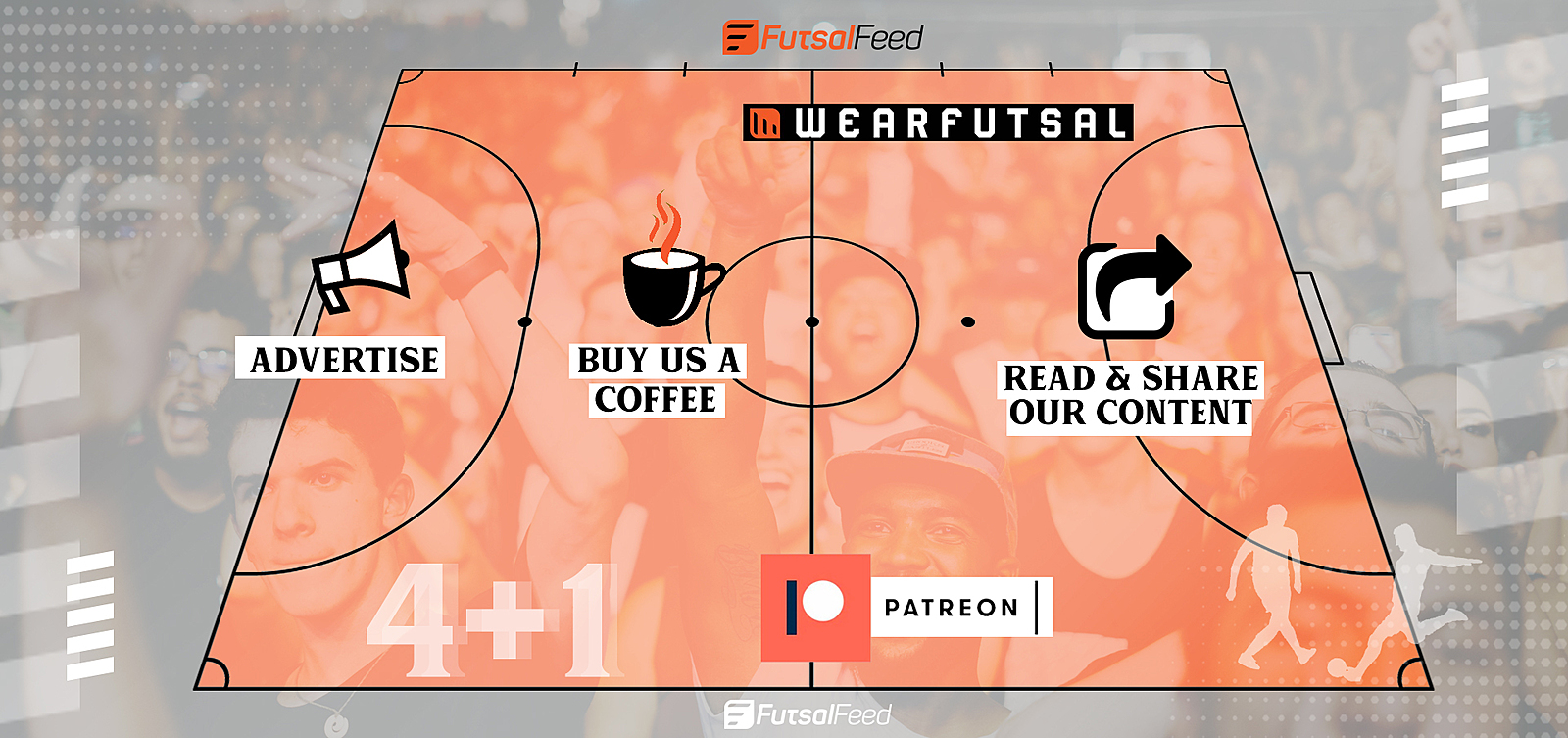
Last update: 11 June 2021

